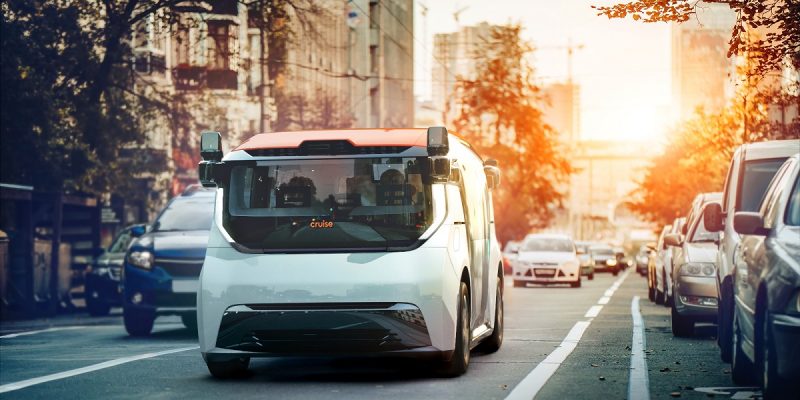General Motors’ Cruise has finalized a deal with the city of Dubai and its transport regulator.
From now until 2029, Cruise will be the exclusive provider of self-driving taxis and ride-hailing services in the city. Under the agreement, Cruise will establish a new Dubai company that will be fully responsible for the deployment, operation and maintenance of the fleet. Cruise expects to have a fleet of 4,000 vehicles cruising around the city’s bustling streets by 2030, with deployment scheduled to commence in 2023.
Financial terms of the agreement were not disclosed but this is a win for Cruise no matter which way you slice it. Twenty years ago, Dubai was a sleepy fishing village on the Persian Gulf. Now it’s a global destination famous for its fashion, luxury shopping, five-star resorts, and ostentatious architecture, including the tallest building in the world. Last week’s deal not only gives Cruise exclusive rights to robo-taxis in Dubai but it does so in a city with a reputation for rapid transformation.
This marks Cruise’s first foray outside of the United States. To date, it has focused its pilots in San Francisco, where the company is headquartered, and in Scottsdale, Arizona, where it is partnering with Walmart on a grocery delivery pilot that’s expected to launch soon. Last week Walmart went a step further and joined a $2Bn funding round in Cruise that valued the start-up at $30Bn. Walmart didn’t reveal the size of its investment but it’s rumored to be around $500M.
The supermarket chain is eager to develop a last-mile delivery ecosystem that can compete with Amazon, which purchased Zoox last year for $1.2Bn and has aggressively pursued autonomous, contact-free deliveries during the pandemic. Cruise has made it clear that it, too, would like to deploy its vehicles across the US in a network of autonomous ride-hailing and delivery operations but the lack of regulatory framework in the US makes this unlikely anytime soon. In Dubai, on the other hand, Cruise has the crown prince’s blessings and the full weight of Dubai’s Roads and Transport Authority (RTA) behind it.
In the coming decade the RTA wants to reduce transportation costs in the city by roughly $250M per year and save about $400M a year by reducing environmental pollution by 12%. Likewise, it wants to generate $5Bn in annual economic returns by increasing the efficiency of the transportation sector in Dubai. This is the mandate motivating Cruise’s arrival in the United Arab Emirates.
It will be interesting to see if this deal marks the start of a trend, with American-based AV companies finding lucrative inroads in the Middle and Far East, or if Chinese companies, like Alibaba-backed AutoX, claim those prizes first. Last week rumors swirled that Apple is close to signing a manufacturing deal for its self-driving Apple Car. This time it looks like Korean electronics giant LG will jointly manufacture the vehicles with Canadian auto supplier Magna. If it happens, it would give Apple a strategic leg up for launching AVs in the Korean market in the years ahead.
Then again, Hyundai backed out of a similar deal with Apple two months ago, as did Nissan before that, so we’ll see if this actually comes to fruition or if it dies in the rumor mill like everything Apple Car related has in the past.
by Andrew Tolve
Source: https://www.tu-auto.com
CUT COTS OF THE FLEET WITH OUR AUDIT PROGRAM
The audit is a key tool to know the overall status and provide the analysis, the assessment, the advice, the suggestions and the actions to take in order to cut costs and increase the efficiency and efficacy of the fleet. We propose the following fleet management audit.
FLEET MANAGEMENT AUDIT




